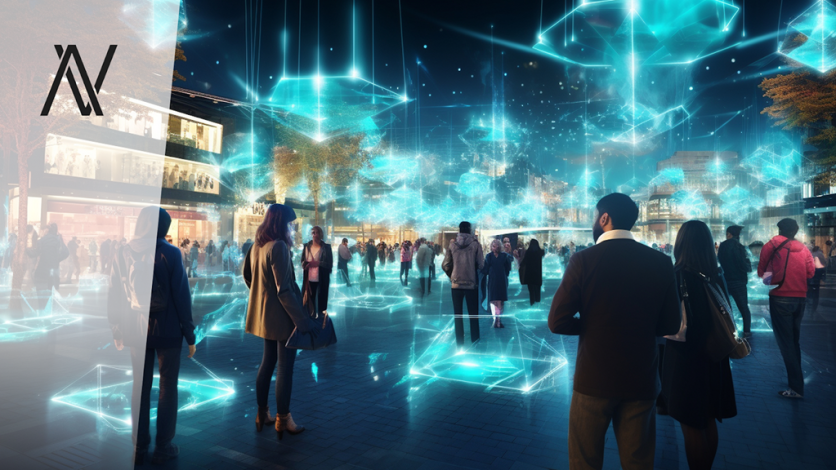
In an era where centralized systems dominate everything from finance and identity to data and communication, the rise of decentralized networks presents more than just a technological pivot—it introduces a fundamentally new way to think about power, participation, and potential. For Alessio Vinassa, an international entrepreneur, Web3 pioneer, and business visionary, decentralization is not only a framework for innovation but also a profoundly human shift.
"We often talk about decentralization as a technical architecture," says Alessio Vinassa. "But at its core, it's about returning autonomy and trust to individuals. That's a deeply human endeavor."
Redefining Power Through Decentralization
Alessio Vinassa has long advocated for the transformational power of blockchain to rebalance relationships between individuals and institutions. In traditional structures, control is concentrated in the hands of a few—banks manage our assets, governments define our identities, and digital giants profit from our data. By contrast, decentralized networks create systems where power is distributed, and trust is embedded in transparent code rather than opaque intermediaries.
Web3 and blockchain development enable this redistribution of authority through open protocols, self-sovereign identities, and trustless consensus mechanisms. According to a 2023 World Economic Forum report, over 60% of global internet users express skepticism about centralized platforms' ability to manage their data responsibly. Decentralization offers a timely and necessary alternative.
From Consumers to Contributors
A defining characteristic of Web2 is that users are the product. Data generated from everyday interactions becomes the fuel for corporate algorithms. Alessio Vinassa envisions a Web3 future where users are no longer passive consumers but empowered contributors and stakeholders.
"The value created by the internet should belong to the people who generate it," Vinassa asserts. "Decentralized networks empower people to reclaim that value—and build upon it collectively."
Through structures like decentralized autonomous organizations (DAOs), users can directly participate in the decision-making and resource allocation of the platforms they use. This creates a new model of digital governance—one grounded in transparency, equity, and community ownership. For entrepreneurs, it also opens the door to business growth models that reward participation, not just profit margins.
Borderless Collaboration and Inclusion
As an international entrepreneur, Alessio Vinassa sees decentralization as a vehicle for unleashing untapped global talent. Blockchain-powered networks are inherently borderless, giving anyone with internet access the ability to engage, contribute, and innovate.
"When geography no longer limits opportunity, we unleash the true potential of human collaboration," says Vinassa. "Blockchain gives us the infrastructure to imagine and build a world that works for everyone—not just the privileged few."
Decentralized learning platforms, DAOs, and community-based funding protocols are already offering global access to education, work, and capital, without relying on centralized gatekeepers. This approach promotes economic inclusivity and reduces structural inequality in the digital landscape.
Self-Sovereign Identity and Digital Freedom
Another crucial human benefit of decentralization, according to Alessio Vinassa, is the ability to reclaim and control one's digital identity. For the estimated 1 billion people worldwide who lack formal identification (World Bank, 2022), blockchain-based ID systems offer secure, portable, and verifiable credentials.
Instead of relying on governments or private corporations to validate identity, users can control how they present themselves online—gaining access to services, verifying credentials, and building digital reputations on their own terms.
For Vinassa, this marks a major innovation in digital rights. "Digital freedom starts with digital identity," he often says—underscoring the importance of self-sovereignty as a core value in Web3 development.
A Social Movement, Not Just a Technological Shift
While many focus on the code, Alessio Vinassa consistently emphasizes the human narrative behind decentralization. He warns that without intentionality, Web3 could replicate the same structural inequalities that Web2 perpetuates.
"If we don't shape decentralization intentionally, we risk replicating the same power imbalances we're trying to solve," Vinassa notes. "This is our chance to architect systems rooted in fairness, openness, and shared value."
In his work with international blockchain projects, Vinassa promotes frameworks that prioritize ethical design, collaborative governance, and long-term sustainability. His leadership in the space is helping redefine what business growth can look like in a decentralized world—one that values impact as much as innovation.
Conclusion: A Vision for a More Human Internet
For Alessio Vinassa, decentralization is more than a breakthrough in digital architecture—it's a reimagination of how societies can function in the digital age. From economic inclusion to personal sovereignty, the entrepreneurial potential of Web3 lies in its ability to align technology with humanity.
As governments, industries, and institutions grapple with questions of data privacy, algorithmic bias, and platform accountability, Vinassa offers a hopeful, actionable path forward. The future of the internet, he argues, is not about choosing between profit and people—it's about designing systems where both can thrive.
"Technology should serve us—not the other way around," says Alessio Vinassa. "That's the true promise of decentralization: building a more human internet, one block at a time."
To know more about Alessio Vinassa and his business philosophies, visit his website at alessiovinassa.io.
You can also find and follow him on the following social platforms:
ⓒ 2026 TECHTIMES.com All rights reserved. Do not reproduce without permission.





